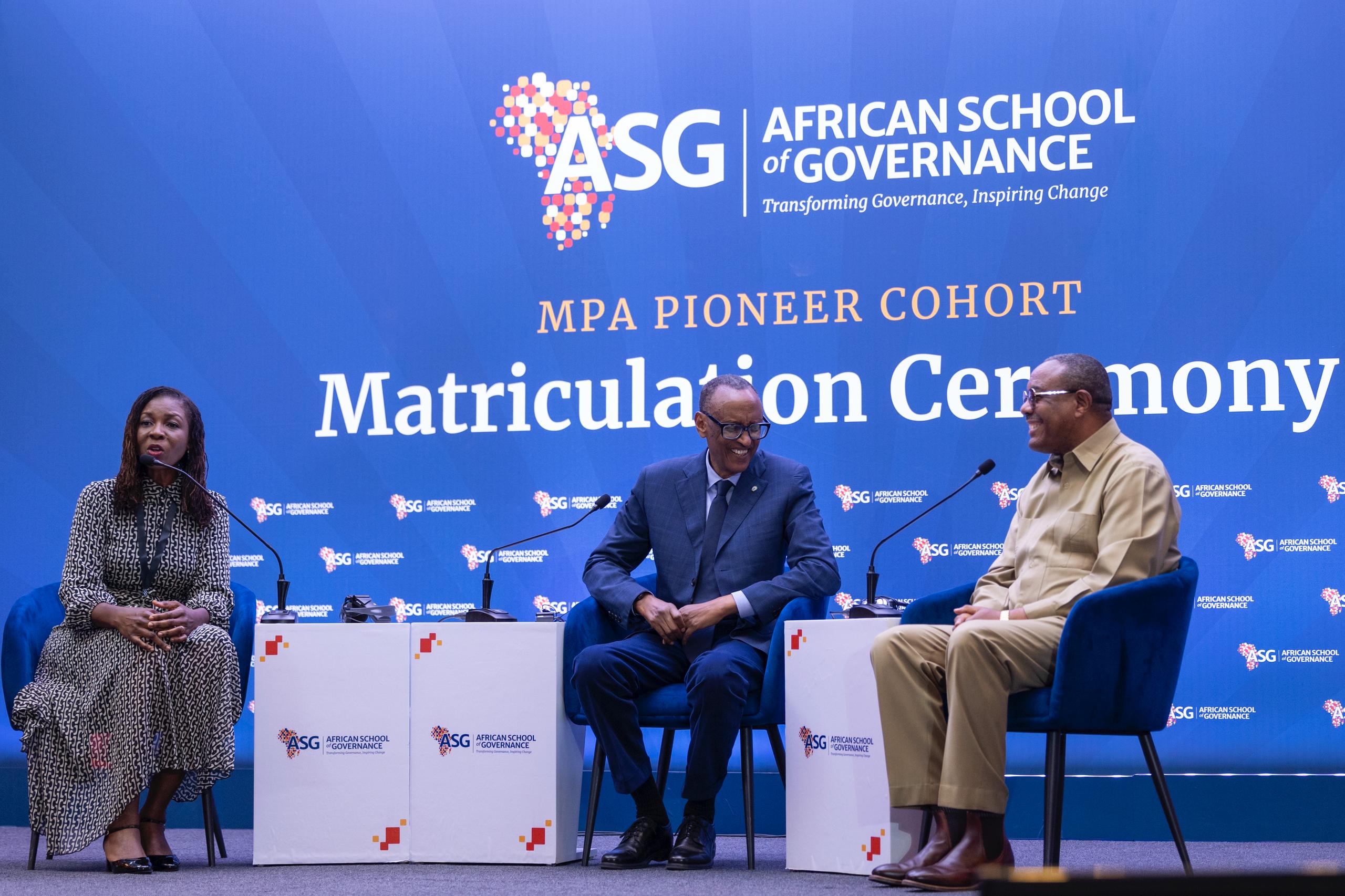Social media is abuzz, captivated by President Paul Kagame’s whirlwind schedule that has taken him across continents in barely a week.
Rwandans and Africans alike have marvelled at a Head of State whose stamina, precision, and dedication to duty reflect not only extraordinary personal discipline but also a deep commitment to the transformation of Rwanda and the advancement of Africa.
In just seven days, Kagame has embodied the definition of tireless leadership: representing Rwanda at the highest levels of diplomacy, forging partnerships for sustainable development, championing Africa’s voice on global stages, and inspiring the continent’s next generation of leaders.
His work rhythm, packed with state visits, global sports diplomacy, and continental governance initiatives, has been hailed online as the ultimate reflection of a president “without pause.”
Three-day visit to Azerbaijan
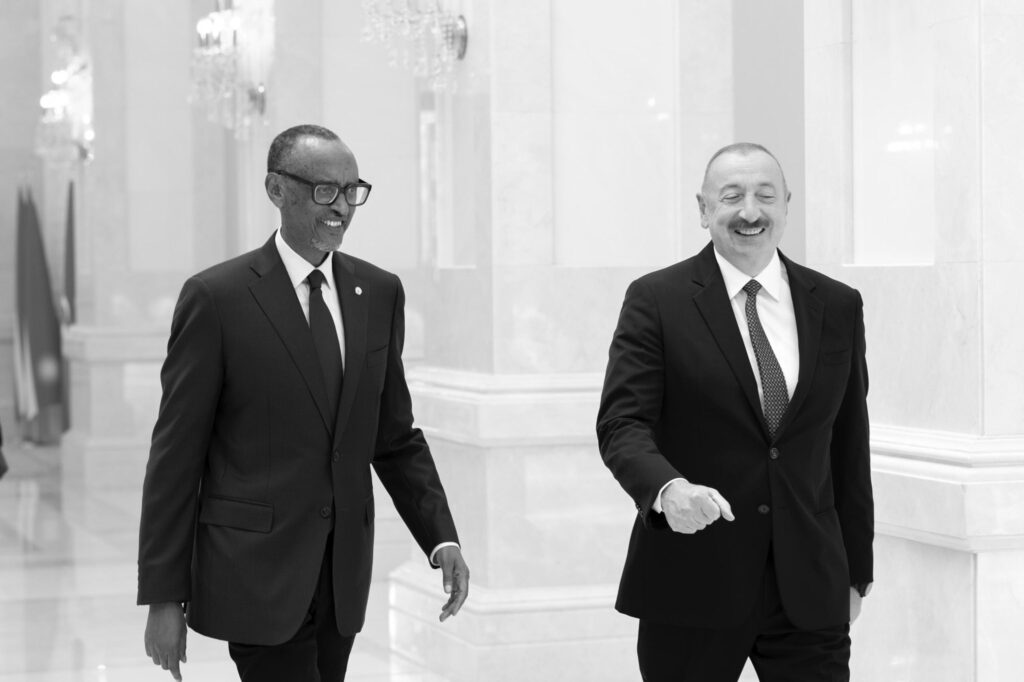
The story of Kagame’s whirlwind week began on 19 September 2025, when he arrived in Baku, Azerbaijan, for a three-day official visit. His host, President Ilham Aliyev, welcomed him with a full state ceremony; a guard of honour, playing of national anthems, and bilateral discussions that underscored the growing ties between Rwanda and Azerbaijan.
The two countries may be geographically distant, but both are small states that have mastered the art of punching above their weight. Discussions in Baku revolved around cooperation in trade, energy, technology, and infrastructure.
Kagame, whose leadership has always emphasised learning from the successes of others, also toured Baku’s Formula 1 Grand Prix circuit. There, he saw firsthand how a city had transformed sports into a driver of international visibility, tourism, and economic growth.
On September 21, as the Azerbaijan Grand Prix unfolded, Kagame’s presence signaled more than diplomatic courtesy—it was a reminder of Rwanda’s own ambition to leverage sport as a development tool, a vision already visible in Kigali’s transformation into a cycling capital.
Visit to Egypt
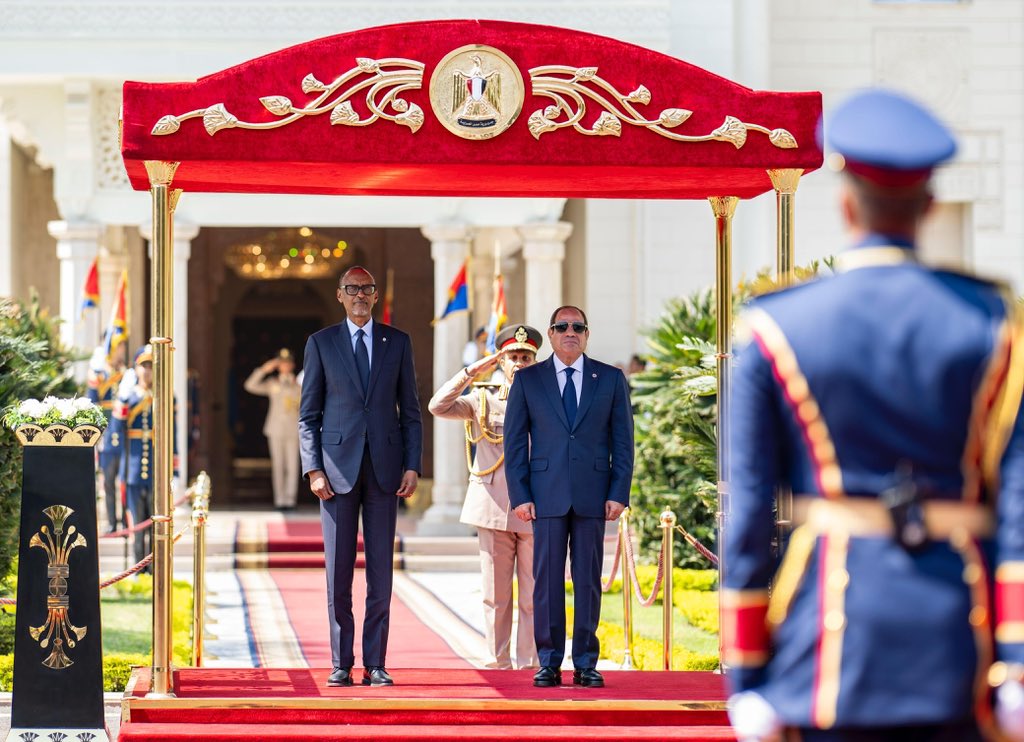
From Azerbaijan, Kagame’s mission shifted swiftly south. On September 23, he landed in Cairo, Egypt, where he was received by President Abdel Fattah El-Sisi at the Ittihadiya Palace. The two leaders inspected the guard of honor, listened to national anthems, and then plunged into bilateral discussions that produced tangible outcomes.
Key agreements were signed in areas of investment promotion, water resource management, housing, and health cooperation. Particularly striking was Egypt’s commitment to support the establishment of a modern cardiac treatment center in Kigali. This facility, once operational, will not only save lives but also position Rwanda as a regional hub for specialized healthcare.
For Kagame, the Egypt visit was more than a transactional diplomatic stop. It was an affirmation of pan-African solidarity—two nations from the continent’s north and east working together to advance shared priorities.
It also provided an opportunity to revisit the delicate question of the Nile Basin, with El-Sisi reiterating Egypt’s commitment to constructive dialogue with upstream countries, including Rwanda.
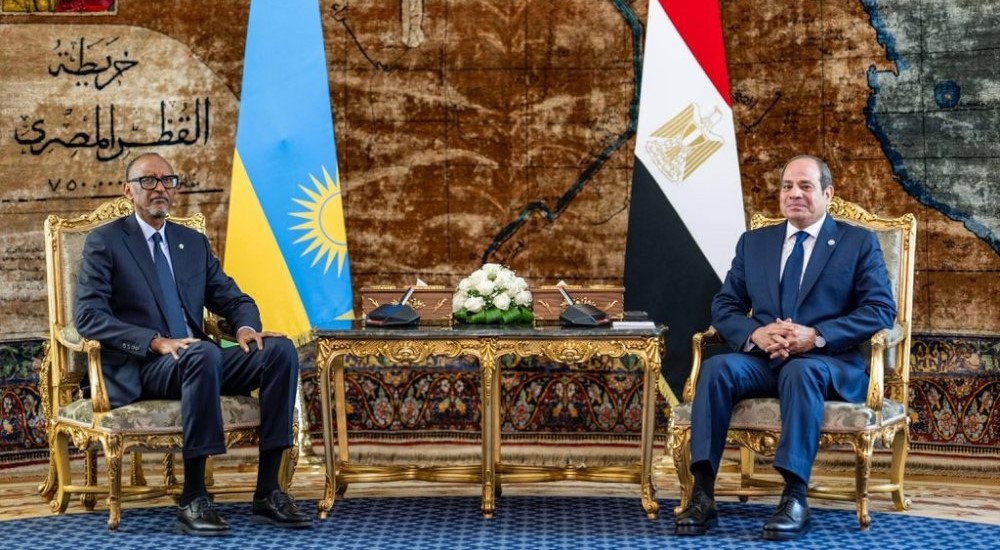
The symbolism was profound. Kagame, just days after engaging in Eurasia, was now sealing partnerships in Africa’s most populous Arab nation, reinforcing Rwanda’s identity as both a proudly African and globally engaged country.
A Global Sports Stage for Africa
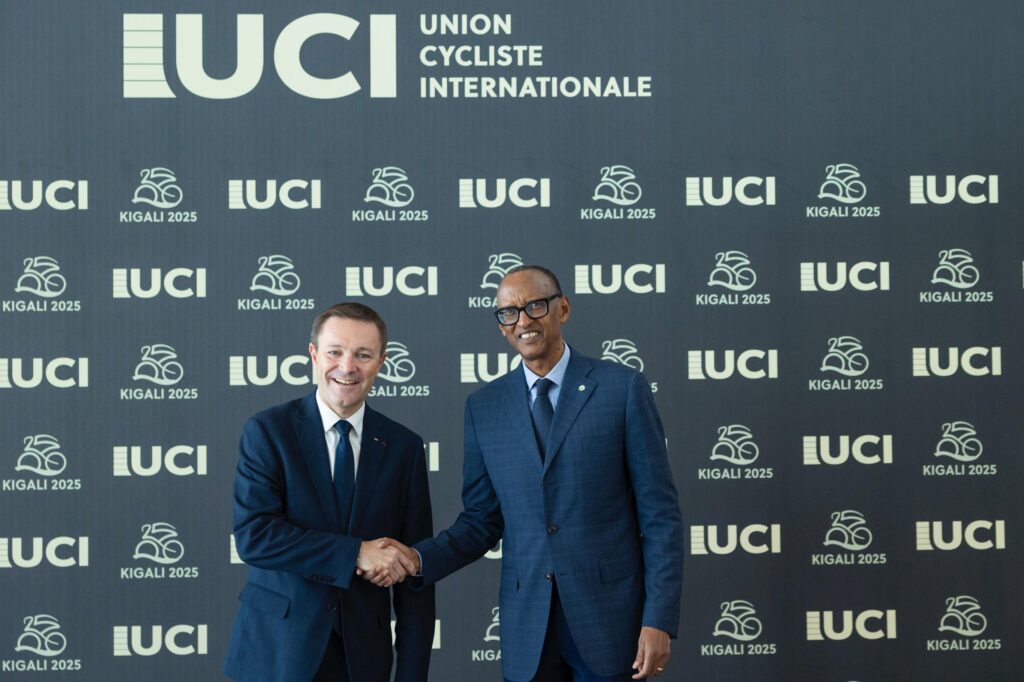
Barely two days later, on September 25, President Kagame was back home. Yet, rather than resting from his international engagements, he was at the forefront of hosting one of the most prestigious sporting governance events in the world—the 194th Congress of the Union Cycliste Internationale (UCI).
The congress, held during the UCI’s 125th anniversary celebrations, marked the first time in history that the event had come to Africa, and Rwanda, in particular.
In his address to delegates, Kagame spoke of the symbolism of Rwanda’s hills—once associated with hardship—now serving as arenas where resilience and determination shine through cycling.
He welcomed athletes, officials, and fans from across the world, reminding them that Africa’s time in global sport had arrived.
For Rwanda, hosting the UCI Congress and the Road World Championships was more than a celebration of cycling. It was an opportunity to showcase the nation’s transformation, its ability to host world-class events, and its aspiration to redefine Africa’s image. Kagame’s presence, energy, and words captured this spirit perfectly.
African School of Governance: Investing in the future
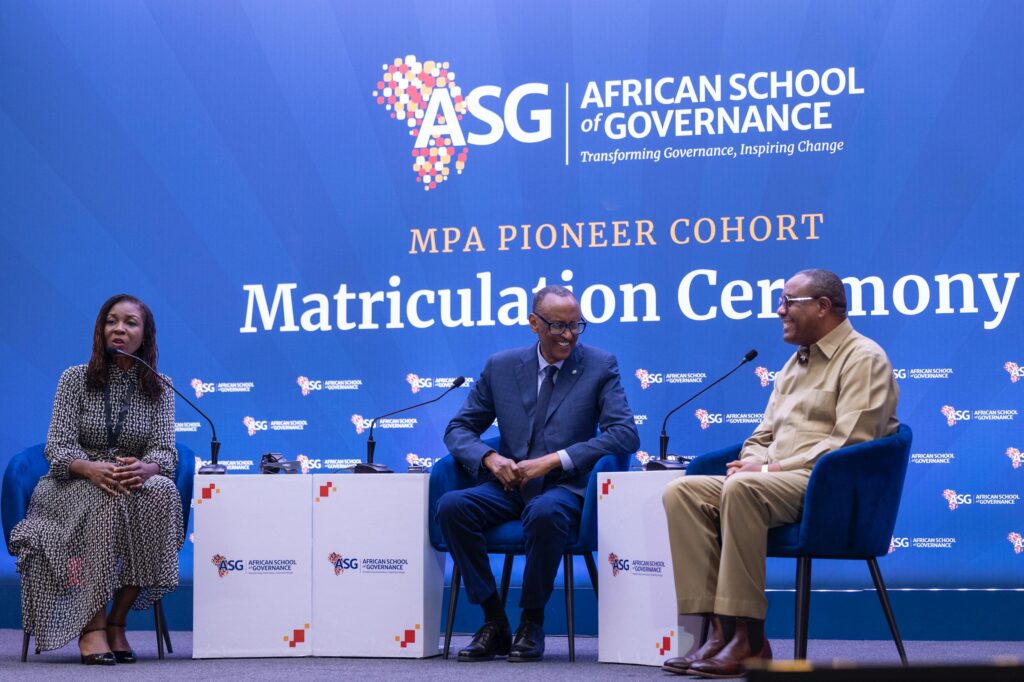
Amid this whirlwind of diplomacy and global sports leadership, Kagame’s calendar also made space for a vision deeply close to his heart—the African School of Governance (ASG). ASG represents a bold attempt to train Africa’s next generation of leaders in the principles of integrity, foresight, and accountability.
For Kagame, ASG is not just an educational initiative. It is a legacy project—an investment in the continent’s human capital. It reflects his conviction that Africa’s progress will depend not only on infrastructure or trade agreements but also on the quality of leadership steering its institutions and nations.
A testament to relentless duty
From September 19 – 25—a span of just seven days—Kagame’s schedule reads like the diary of a man on a mission: Azerbaijan for international diplomacy and lessons in urban innovation; Egypt for strategic continental partnerships; Kigali for a global sporting congress; and the African School of Governance for the long-term project of shaping Africa’s future leaders.
Where many leaders would pause to recover after one high-level engagement, Kagame pressed forward, country after country, event after event. His stamina is remarkable, but more remarkable still is what it communicates: that Rwanda cannot afford to waste time, and that Africa must seize every opportunity to assert itself on the world stage.
This pace of leadership is not about personal showmanship. It is a clear statement of philosophy. Kagame has long argued that small nations like Rwanda must work harder, faster, and smarter to achieve results. His recent week of engagements demonstrated that philosophy in practice.
